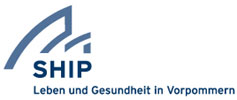On the basis of the population-based project Study of Health in Pomerania (SHIP), a third cohort (NEXT) will be established in 2021. Within the NEXT module "One Health", animal contacts (dog, cat, poultry) of the 4000 randomly selected participants (20-79 years) will be investigated and risk factors for zoonotic disease transmission as well as husbandry and environmental conditions will be recorded with standard measures. The aim is to unravel the complex interactions between human-household-animal-pet-environment as well as factors influencing zoonotic disease transmission in private households in order to create greater awareness for the private handling of pets and livestock. Biomaterials (blood; rectal/cloacal, throat, and nasal swabs; fecal samples) will be tested for parasitic (Echinococcus spp, Cestodes: dog, cat; Toxoplasma gondii: cat), bacterial (Campylobacter spp.: dog, cat, poultry, human; Borrelia burgdorferi: dog), and viral pathogens (Hepatitis E virus: dog, cat, human; TBE virus: dog, cat, poultry, human). Metagenome sequencing of the gut microbiome will be performed on 450 samples (50 non-animal keepers with food-associated exposure; 100 animal keepers and 300 animal contacts) to compare bacterial strains and resistance genes. Biomaterials and extracted DNA will be stored in the biobank and available for future studies. A questionnaire will be offered as an online survey to animal keepers across Germany to capture regional heterogeneity. Risk assessments and recommendations for animal keepers will be derived from all generated results, including literature and expert knowledge. Due to the comprehensive survey protocol in humans, this One Health approach allows to investigate not only risks of zoonotic disease transmission in animal households, but also effects of animal husbandry and analysed zoonotic infections on human health.
Further information on the SHIP study can be found on the project page:
https://www2.medizin.uni-greifswald.de/cm/fv/ship/
Involved INNT scientists:
Dr. Martin Eiden
Dr. Markus Keller
Prof. Dr. Martin H. Groschup


